Muhammad Aurangzeb Ahmad
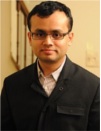 Profile: Post-doctoral fellow at the University of Minnesota. Data scientist. View his LinkedIn profile.
Profile: Post-doctoral fellow at the University of Minnesota. Data scientist. View his LinkedIn profile.MMO Currency Research: From 2009 to 2011, Ahmad has co-written research on gold farmers and how their activity is similar to the criminal networks in the real world. As a data scientist, he helped analyze the mountain of player behavior data of accounts that were banned for virtual gold farming. Using this, Ahmad and his research colleagues were able to create predictive models that could identify players who might engage in gold farming. View his latest research papers.
Leanna Archambault
 Profile: Archambault is an Assistant Professor at Arizona State University, specializing in educational technology and virtual schooling. View her research works.
Profile: Archambault is an Assistant Professor at Arizona State University, specializing in educational technology and virtual schooling. View her research works.MMO Currency Research: Barnett and Archambault co-wrote the paper "How Massive Multiplayer Online Games Incorporate Principles of Economics (2010)," which was published in the TechTrends journal Volume 54, Issue 6. It talked about how MMORPGs could potentially have an educational influence on players, particularly in instructing about economic theory given that these online games compel players to use virtual currencies and interact with virtual economies.
Stuart Barnes
 Profile: Chaired Professor of Management and Director of Research in Norwich Business School, University of East Anglia. View his LinkedIn profile
Profile: Chaired Professor of Management and Director of Research in Norwich Business School, University of East Anglia. View his LinkedIn profileMMO Currency Research: Barnes wrote "Purchase behavior in virtual worlds: An empirical investigation in Second Life" in 2011. He also co-wrote "Why people buy virtual items in virtual worlds with real money" in 2007 with Yue Guo. The paper aims to identify, model and test the individual determinants for the decision to purchase virtual items within virtual game communities such as Second Life and Everquest, which will then help researchers understand the player behavior towards virtual item transactions. View his complete list of publications
Joshua H. Barnett
 Profile: Barnett is an Assistant Professor at Arizona State University, specializing in education policy.
Profile: Barnett is an Assistant Professor at Arizona State University, specializing in education policy.MMO Currency Research: Barnett and Archambault co-wrote the paper "How Massive Multiplayer Online Games Incorporate Principles of Economics (2010)," which was published in the TechTrends journal Volume 54, Issue 6. It talked about how MMORPGs could potentially have an educational influence on players, particularly in instructing about economic theory given that these online games compel players to use virtual currencies and interact with virtual economies.
Dr. Richard Bartle
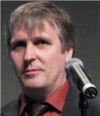 Profile: Creator of the first MUD and author of the seminal Designing Virtual Worlds book, considered a pioneer of the MMORPG industry.
Profile: Creator of the first MUD and author of the seminal Designing Virtual Worlds book, considered a pioneer of the MMORPG industry.MMO Currency Research: While most known for his work in identifying the major archetypes o MMORPG gamers, Bartle has also written papers discussing virtual world goods and trading. One example is his paper on the "Pitfalls of Virtual Property (2004)" which identifies five pitfalls associated with the notion of real-world ownership of virtual property. In the same paper he explores the intricacies associated virtual property and the potential conflict between developers and players on viewing their right to the virtual property that may eventually lead to legal battles in the real world.
Dr. Edward Castronova
 Profile: Castronova is a Professor of Telecommunications at Indiana University, and holds a PhD in Economics from the University of Wisconsin-Madison. He specializes in the study of games, and is considered one of the pioneers in virtual economics. View his web portal.
Profile: Castronova is a Professor of Telecommunications at Indiana University, and holds a PhD in Economics from the University of Wisconsin-Madison. He specializes in the study of games, and is considered one of the pioneers in virtual economics. View his web portal.MMO Currency Research: Castronova's works on virtual economics is one of the most cited in the field. He will be publishing a book titled "Virtual Economies: Analysis and Design" with Lehdonvirta which explains the economics behind designing virtual markets. He has also written papers that explore a model that can be used to calculate damages from real-money trading, and also those that offer evidence that virtual economies - with all their virtual currency features - are now acting like real ones. View his list of books, papers and even a link to his TED talk
Marcos Charif
 Profile: Senior Associate, Haris Hagan.
Profile: Senior Associate, Haris Hagan.MMO Currency Research: "Show me the money: Social Games, Virtual Currency and Gambling (2011)" published in iGaming Business March 2o11. Charif explores the blurring of the lines between social games and even online games like World of Warcraft and gambling, as the former "exploit the grey area that separates gambling from non-gambling" with regulators becoming more interested in possibly reining in games that eventually cross the line. Other publications include "Virtual Currency: Money, Money's Worth or None of the Above" published in 2012.View his full list of publications.
Steven Chung
 Profile: Attorney at Law and received his Masters of Laws in Taxation from Loyola Law School.
Profile: Attorney at Law and received his Masters of Laws in Taxation from Loyola Law School.MMO Currency Research: Chung wrote the paper "Real taxation of virtual commerce (2008)" explores how with the rise of real money earnings derived from virtual world activities, governments have begun to look into whether virtual world transactions are subject to real taxes, even if the participant does not convert his virtual income into cash. It looks into the virtual world's economic environment to determine whether in-world transactions should be taxable events, especially when some in-game economies have integrated real cash.
Noshir Contractor
 Profile: Professor at Northwestern University, Master of Science in Communication Program. View his LinkedIn profile.
Profile: Professor at Northwestern University, Master of Science in Communication Program. View his LinkedIn profile.MMO Currency Research: Having published more than 250 research papers in communication and organization, Contractor has analyzed MMO networks and organizations in virtual worlds. He co-wrote the paper "Trust Among Rogues? A Hypergraph Approach for Comparing Clandestine Trust Networks in MMOGs (2011)" and unraveled the trust network structures that exist between gold farmers, their undetected affiliates and normal players. Findings of this research could then be used to improve detection of gold farmers.
Julian Dibbell
 Profile: American author and technology journalist focusing on online communities. View his personal website.
Profile: American author and technology journalist focusing on online communities. View his personal website.MMO Currency Research: Dibbell wrote the paper titled "Owned! Intellectual property in the age of dupers, gold farmers, eBayers, and other enemies of the virtual state (2003)" and wrote the book "Play Money: Or, How I Quit My Day Job and Made Millions Trading Virtual Loot (2006)" and the magazine expose "The Life of the Chinese Gold Farmer (2007)." All three explore the subculture of virtual currency farming and its impact not only on the gaming world in which it spawns from but also on the real world. He is also a founder of the Terra Nova blog which had for a time focused on research and analysis on real money trading in virtual worlds, but has now expanded to the broader online gaming culture.
Angela Pool Funai
 Profile: Funai is a research and grant coordinator at Baylor University.
Profile: Funai is a research and grant coordinator at Baylor University.MMO Currency Research: "Economic Justice in Two MMORPGs: How Comparative Advantage Translates into Virtual Worlds" Working Paper, 2011. Funai tries to apply familiar theories of economic justice to two selected MMORPGs to discover how such frameworks are modeled in virtual worlds. She drew from communitarian, cosmopolitan and liberal internationalist perspectives, with special attention given to virtual currency and trade.
Jin Ge
 Profile: Ph.D. candidate in Communication at University of California San Diego. View his profile.
Profile: Ph.D. candidate in Communication at University of California San Diego. View his profile.MMO Currency Research: Credited as the first researcher to produce a documentary on Chinese gold farmers titled "Gold Farmers"(2007), Ge gave a face to the virtual gold farmers that populated online games. He also tackled the business of virtual currency trading and selling, and two sides of the coin - from the Chinese gold farmers who earn their living from the activity to the American gamers who serve as one of the activity's primary customers. He has also written articles on gold farming based on his research exposure.
Yue Guo
Profile: Ph.D. researcher, University of East Anglia.
MMO Currency Research: Co-wrote "Why people buy virtual items in virtual worlds with real money" in 2007 with Stuart Barnes. The paper aims to identify, model and test the individual determinants for the decision to purchase virtual items within virtual game communities such as Second Life and Everquest, which will then help researchers understand the player behavior towards virtual item transactions.
Juho Hamari
Profile: Researcher, Helsinki Institute for Information Technology. See his personal website here.
MMO Currency Research: Juho has been releasing publications focusing on virtual economy continuously since 2010. Here are some examples of his work:
- Game design as marketing: How game mechanics create demand for virtual goods (2010) - published together with Vili Lehdonvirta.
- Virtual Goods Sales: New requirements for business modeling? (2010) - discusses a conceptual meta-model of the virtual goods sales business and suggests modifications to current frameworks in place
- Transforming Homo Economicus into Homo Ludens: A Field Experiment on Gamification in a Utilitarian Peer-To-Peer Trading Service (2013)
Richard Heeks
 Profile: Professor of Development Informatics in the Institute for Development Policy and Management, University of Manchester. View his staff profile.
Profile: Professor of Development Informatics in the Institute for Development Policy and Management, University of Manchester. View his staff profile.MMO Currency Research: Heeks wrote the paper "Understanding 'Gold Farming' and Real-Money Trading as the Intersection of Real and Virtual Economies"(2009) which takes a closer look at the activity from the production of MMO virtual currency, to item trading, to the act of selling to players. It also tries to relate gold farming and trading as representing "the intersection and blurring of the real and the virtual" primarily due to its impact on the real and virtual game economies. View his full list of publications
Eino Joas
 Profile: Joas is a veteran virtual economy designer, and helped design the microtransaction system for CCP's DUST 514 massively multiplayer shooter game.
Profile: Joas is a veteran virtual economy designer, and helped design the microtransaction system for CCP's DUST 514 massively multiplayer shooter game.MMO Currency Research: He publishes data analysis reports such as the state of pricing in virtual goods and currencies in free to play games here like the "F2P Games Virtual Goods & Currencies Pricing Report + Data 2013." Also, together with Lehdonvirta, he runs a virtual economy consulting company that introduced a new virtual currency model to the Sony PlayStation network. He also designed the monetization strategy for Avatars United, which was then acquired by Linden Lab, makers of Second Life. Joas helps game developers, publishers, online communities and virtual currency operators to develop and run virtual economies.
Brian Keegan
 Profile: Post-doctoral fellow in computational social science at Northeastern University. View his profile.
Profile: Post-doctoral fellow in computational social science at Northeastern University. View his profile.MMO Currency Research: Keegan has used large-scale data behavioral data from massively-multiplayer online game logs to develop statistical models that would help understand the complex networks and relationships in-game. He was one of the authors of the study, "The Ones That Got Away: False Negative Estimation Based Approaches for Gold Farmer Detection (2012)" Specifically, he has examined together with other researchers "how large-scale behavioral data about virtual currency cheaters in massively multiplayer online games can better inform theories about the dynamics of offline clandestine behavior."
Aphra Kerr
 Profile: Senior lecturer & researcher at National University of Ireland, Maynooth
Profile: Senior lecturer & researcher at National University of Ireland, MaynoothMMO Currency Research: Kerr wrote the book "The Business and Culture of Digital Games (2006)" and most recently co-wrote with Stefano de Paoli the paper "The Assemblage of Cheating: How to Study Cheating as Imbroglio in MMORPGs (2010)" and the paper "'We Will Always Be One Step Ahead of Them: A Case Study on the Economy of Cheating in MMORPGs (2011)" that was published in the Journal of Virtual Worlds Research in 2010. The former investigated cheating in MMORPGs using the so-called Assemblage Theory while the latter focused on the economic dimensions of cheating in MMORPGs as they related to the business activities of companies that offer cheating software, in particular programs called 'bots' through a case study of Tibia.
Vili Lehdonvirta
 Profile: Economic sociologist, virtual economies and digital work at Oxford Internet Institute. View his LinkedIn profile.
Profile: Economic sociologist, virtual economies and digital work at Oxford Internet Institute. View his LinkedIn profile.MMO Currency Research: Since 2005, Lehdonvirta has published over a dozen academic papers on virtual goods business, virtual consumption and related topics. He has given popular lectures on topics such as virtual currencies, virtual item design and digital markets at Game Developers Conference, GDC China and other leading industry events. Lehdonvirta was the lead author of the World Bank report Knowledge Map of the Virtual Economy, which reported data on the ecomics of gold farming and secondary market trade.
Lehdonvirta presented "Designing Successful Virtual Currency by Breaking (Almost) Every Rule in the Economic Textbook (2012)" during the Game Developers Conference 2012. View his presentation. He talks about "how to design the actual objects that are used as money in a virtual economy, and how users interact with those objects."
Lehdonvirta also explores what makes "good money" in a game economy, as opposed to the real economy. Through an examination of both historical and virtual examples, and through this was able to come up a guideline that designers can use.
Lehdonvirta's book Virtual Economies: Design and Analysis (with Edward Castronova) is coming out from MIT Press in 2014.
Tuukka Lehtiniemi
 Profile: Previously Researcher at the Helsinki Institute for Information Technology, currently communications market specialist at Finnish Communications Regulatory Authority. View his LinkedIn profile.
Profile: Previously Researcher at the Helsinki Institute for Information Technology, currently communications market specialist at Finnish Communications Regulatory Authority. View his LinkedIn profile.MMO Currency Research: Lehtiniemi tries to pin down the size of the real-money trading industry in his article "How big is the RMT market anyway?"(2007) where he put the worldwide RMT volume at around $2 billion. He goes on to analyze the breakdown of the market on a regional basis, tackling the "huge" Asian RMT market as well as the EU/US secondary markets. His estimates, though full of rough estimates and extrapolations, put a number to the booming RMT activity.
Timothy Lee Meyer
Profile: Ph.D. candidate at Iowa State University
MMO Currency Research: "A study on trading scams in massively multiplayer online role-playing games and risk mitigation techniques" (2011) was Meyer's graduate thesis. He explores the growing prevalence of online trading scams in MMORPGs, and identifies the targets, objectives and strategies scammers use in these virtual worlds. He then offers a scam mitigation method that aims to reduce scams by employing three services: Barter, Market and Contract, which combined create a "trustworthy venue" for trading.
Stefano de Paoli
 Profile: Teaching Assistant at University of Trento and Research Fellow at Fondazione. Click here to view his linkedin profile.
Profile: Teaching Assistant at University of Trento and Research Fellow at Fondazione. Click here to view his linkedin profile. MMO Currency Research: Paoli most recently co-wrote with Aphra Kerr the paper "The Assemblage of Cheating: How to Study Cheating as Imbroglio in MMORPGs (2010)" and the paper "'We Will Always Be One Step Ahead of Them: A Case Study on the Economy of Cheating in MMORPGs (2011)" that was published in the Journal of Virtual Worlds Research in 2010. The former investigated cheating in MMORPGs using the so-called Assemblage Theory while the latter focused on the economic dimensions of cheating in MMORPGs as they related to the business activities of companies that offer cheating software, in particular programs called 'bots' through a case study of Tibia.
Ben K Pollitzer
 Profile: Attorney at Arkansas Department of Human Services Office of Chief Counsel and previously research assistant at University of Arkansas. View his LinkedIn profile.
Profile: Attorney at Arkansas Department of Human Services Office of Chief Counsel and previously research assistant at University of Arkansas. View his LinkedIn profile.MMO Currency Research: "Serious Business: When Virtual Items Gain Real World Value" published in 2007 looks at the legal issues that arise when players have disputes over virtual property that has real world value.
Markus Sharaput
 Profile: Assistant Professor in the Department of Politics and Public Administration in Canada. View his profile.
Profile: Assistant Professor in the Department of Politics and Public Administration in Canada. View his profile.MMO Currency Research: Sharaput wrote the paper "What Counts as Work? Gear, Grinding, and Gold Farming in MMORGs (2011)" goes into the political and labor implications of MMORPG virtual worlds in the face of rampant gold farming and virtual currency trading. He argues that with a portion of the MMORPG player participation already becoming part of the paid labor market, then "MMORPGs and other equivalent forms of virtual value creation require the development of a new theoretical category of labor, one which acknowledges the creation of value independent from the commodification of the labor which produces it."
Ramin Shokrizade
 Profile: Applied Virtual Economist and Monetization Designer. View his LinkedIn profile.
Profile: Applied Virtual Economist and Monetization Designer. View his LinkedIn profile.MMO Currency Research: Shokrizade has studied large scale group interaction in virtual space, with focus on virtual economies, currencies and monetization models. He is also working with online gaming companies to create monetization models and virtual economy for their games. He also publishes articles discussing his insights on virtual currency, like how creating a new currency for online games is a "very complex endeavor" and how he predicts the size of the secondary RMT market for Star Wars the Old Republic(2011) is somewhere around $900 million (at least for the first year.) Read more of his articles here.
Jaideep Srivastava
 Profile: Professor at University of Minnesota.
Profile: Professor at University of Minnesota.MMO Currency Research: Srivastava co-wrote the paper, "Illicit Bits: Detecting and Analyzing Contraband Networks in Massively Multiplayer Online Games (2011)" where he and his fellow researchers suggested that online game developers study the item networks sold in game in order to better predict gold farming activities. View his full list of publications.
Augustus Urschel
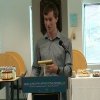 Profile: Intern at US Department of Commerce Economics and Statistics Administrator, previously Research Associate at Council of Hemispheric Affairs. View his LinkedIn profile.
Profile: Intern at US Department of Commerce Economics and Statistics Administrator, previously Research Associate at Council of Hemispheric Affairs. View his LinkedIn profile.MMO Currency Research: Urschel wrote a paper titled "Understanding Real Money Trading in MMORPGs (2011)" which first examines the function of real money trading (RMT) in online games, and the controversy surrounding the activity. He also created what he deems is "an entirely new model for 'calculating' probabilities of RMT activity." Through his findings, he also gives out advice on how developers can combat RMT mainly by improving content, especially by upping the fun factor of wealth generation so that players do not resort to RMT.
Dmitri Williams
 Profile: Associate Professor in the Annenberg School for Communication at the University of Southern California. View his profile.
Profile: Associate Professor in the Annenberg School for Communication at the University of Southern California. View his profile.MMO Currency Research: Williams has dedicated his recent research to studying MMORPGs and has touched on the issue of real money trading in MMORPGs. He co-wrote papers on virtual currency farming, such as "Mining for Gold Farmers: Automatic Detection of Deviant Players in MMOGS (2009)" which analyzed the activity and suggested possible detection techniques that could help deter the illicit practice in online games.
Hiroshi Yamaguchi
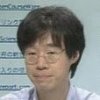 Profile: Professor at Komazawa University and Researcher at Glocom. View his LinkedIn profile.
Profile: Professor at Komazawa University and Researcher at Glocom. View his LinkedIn profile.MMO Currency Research: Yamaguchi has published working papers on online games and virtual markets, such as "An Analysis of Virtual Currencies in Online Games" back in 2004. He also discusses how virtual game currencies are like Local Exchange Trading Systems because of their use by limited communities outside of central bank purview and control. He also argues that since virtual game currencies have effective exchange rates with real currencies, the latter are also meaningful for the real economy.
Nick Yee
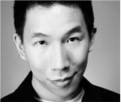 Profile: Research Scientist at Palo Alto Research Center. View his work and research history.
Profile: Research Scientist at Palo Alto Research Center. View his work and research history.MMO Currency Research: Yee is the brain behind The Daedalus Project, an extensive multi-year study of the psychology of MMORPGs conducted with World of Warcraft players. Part of his research involved figuring out how many players purchase and how much they spend on virtual currency(2005). His findings showed that male and female players were equally likely to purchase virtual currency, and that age could be a mild factor for determining whether someone had a tendency to buy virtual currency or not.